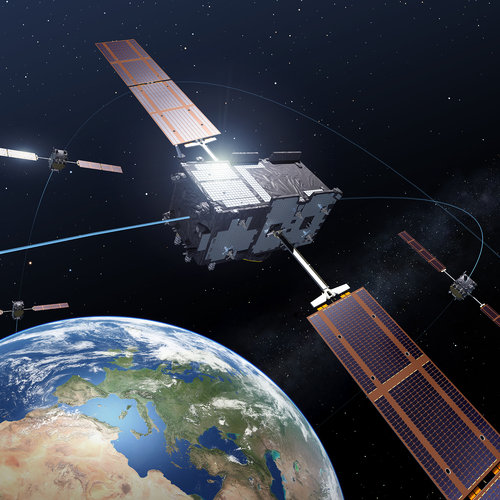Testing in orbit

The satellites were launched on 28 April by SpaceX under contract with ESA. A Falcon 9 rocket injected the Galileo satellites into medium Earth orbit, not far from their final position. During the first hours after launch, the Mission Control Team made sure that the satellites had successfully completed the initialization sequence, that the solar arrays were correctly deployed and able to generate power and that the network of ground stations could track and control them correctly.
Early operations were executed by the Galileo Service Operator, supported by a team of around 30 satellite experts from ESA and satellite manufacturer OHB on site at the Galileo Control Centre in Oberpfaffenhofen, Germany, under the responsibility of EUSPA.
The drift phase then started, with teams on ground guiding manoeuvres to bring the satellites to their final positions, reached on 24 June.
Over the last months, every component on the satellites has been tested to make sure nothing was damaged by the severe launch conditions. Both platform and payload, including antennas and clocks, have been examined.
On 21 August, ESA, OHB and payload manufacturer SSTL assessed the in-orbit test results and concluded that the satellites had not suffered any degradation during launch. ESA, in collaboration with EUSPA, validated the satellites’ performance at system level. In light of these results, the Security Accreditation Board has given the green light for both satellites to begin nominal operations.
This success is a result of the joint efforts of ESA, EUSPA, the European Commission, manufacturer OHB, payload manufacturer SSTL teams at Galileo Control Centres and the Security Accreditation Board.



